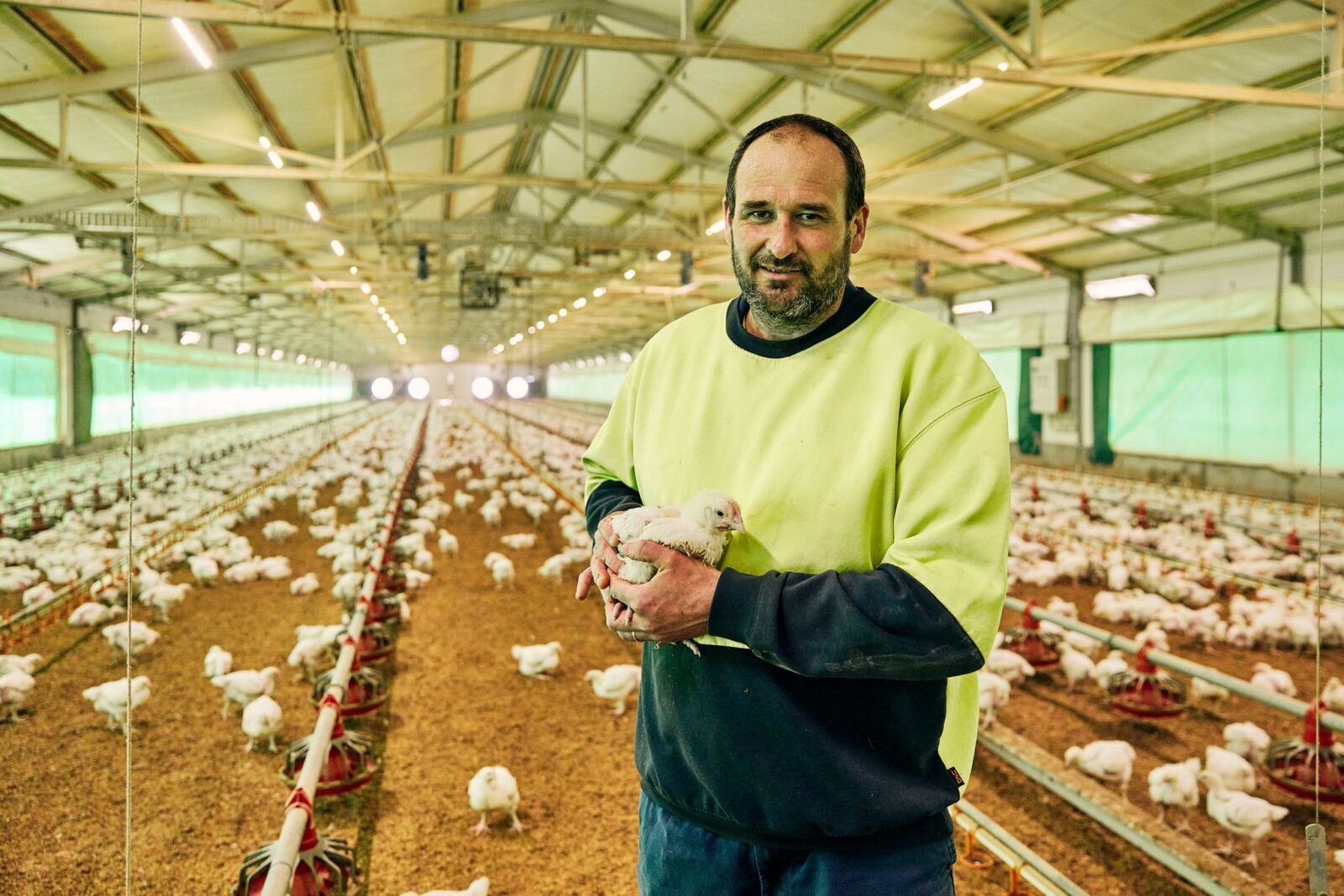Improving the odds: Pinpointing the key factors in Thoroughbred pregnancy loss

 CHICKEN MEAT / Tuesday, 22 April 2025
CHICKEN MEAT / Tuesday, 22 April 2025 
Behavioural science is a multidisciplinary field that seeks to understand the broader ‘system’ of factors that influences how people act and behave, and how to work with communities to bring about positive change.
National behavioural science organisation, Evidn, is leading innovative work to identify how knowledge can be best delivered to, and implemented by, those at the heart of the industry.
Sam Moore, Senior Behavioural Scientist at Evidn, has charge of the three-phase project in conjunction with organisation co-founder, Dr John Pickering.
Phase one seeks to understand the system of factors that influence the chicken meat workforce. It will involve a review of behavioural science literature in the context of research adoption; a desktop review of existing extension and training initiatives; and engaging with stakeholders across the industry to understand their perspectives and what is needed to bring about change.
The aim is to discover the key ‘driving’ and ‘restraining’ forces for research adoption in the industry, and how information can best be disseminated to the workforce.
In phase two, the learnings will be built into a training program for those who work across the industry, such as extension officers, veterinarians, and farm services staff, to enable and accelerate research uptake and improve industry collaboration.
Phase three seeks to embed the training program within the industry and understand its relevance for other AgriFutures Australia levied industries. Phase one work is already underway, with the project due to wrap up in mid-2026.
Mr Moore said the project will equip personnel with the communication skills they need to create impact at the farm level.
“We’ve done a lot of work in adoption programs and we’ve done standalone extension training in the past, and one of the things we see a lot is extremely talented and technically gifted folk with knowledge and expertise,” he said.
“But one of the things we hear from them, especially the junior extension officers, is ‘we have all this great stuff, what we don’t get trained in is putting that into practice’.
“That’s what we can help with. It’s one thing having the skills and knowledge, but motivating your peers and having productive conversations, a lot of the time it’s not what you get trained in as an extension officer or veterinary officer.”
Mr Moore said “deep and meaningful” stakeholder engagement is central to the project. He is encouraging industry participants to share their experiences with the Evidn team.
“(We want) to understand their perspectives, what’s working really well, and most importantly what are some of the potential challenges or barriers that we can do something about,” he said.
“Prioritising those restraining forces based on their impact and feasibility for behaviour change gives us a lot of precision about how to target the training program to be as relevant and impactful as possible.”
The training program will be rolled out later this year. Its content will then be embedded as a practical resource – such as a toolkit or pocket guide – to guarantee its long-term usefulness.
“We hope this will lead to improved bird performance and improved knowledge, skills and capability of the industry staff involved in this program,” Mr Moore said.
“But the main focus is how can we improve the soft skills of industry staff who are working on the ground, and making sure we can get the best support, advice and information out to the people who need it.”
Dr Pickering, speaking at an AgriFutures Chicken Meat Program webinar, said behavioural science has a crucial role to play in ensuring that research influences industry practices. With a dedicated workforce the backbone of the industry, the ability to get cut through is vital.
“The extent to which we can understand and potentially work with people to modify various attitudes or behaviours is probably going to be key to how we solve some of the big challenges,” he said.
“And there’s quite a bit of evidence to suggest that behavioural science provides at least one set of tools or insights that can help us with that here in Australia and elsewhere.”
Evidn was founded in 2016 by Dr Pickering and colleague Jinny Hong. Its first involvement in agriculture was with Project Cane Changer, a behaviour change initiative of sugarcane industry body Canegrowers that aimed to improve farming practices in Queensland’s Wet Tropics region, to protect the Great Barrier Reef.
Almost half (48 per cent) of the Wet Tropics region is now accredited under the industry’s best management practice program, Smartcane BMP, up from 12 per cent when Project Cane Changer started.
Evidn has also supported other research and extension groups, including Wine Australia, Meat & Livestock Australia, and Sugar Research Australia, to maximise program engagement and uptake.
Sarika Pandya, Manager of the AgriFutures Chicken Meat Program, said it was important production-focused research resulted in on-farm improvements and tangible benefits for levy payers.
“We have research underway into mitigating production diseases and optimising reduced-protein diets – but it’s crucial industry can implement the findings,” she said.
“We believe behavioural science can help with that. It’s about working with change agents in the industry so stakeholders receive the information in a way that suits them, and have the skills to take meaningful action.”
For more information on the project or to be part of stakeholder consultation, contact Sam Moore at or Sarika Pandya at . Information about training sessions, along with the toolkit/pocket guide, will be available through industry channels in due course.
To stay informed, subscribe here.
 THOROUGHBRED HORSES / 22.04.25
THOROUGHBRED HORSES / 22.04.25  GLOBAL INNOVATION NETWORKS / 22.04.25
GLOBAL INNOVATION NETWORKS / 22.04.25  WORKFORCE AND LEADERSHIP / 22.04.25
WORKFORCE AND LEADERSHIP / 22.04.25  CHICKEN MEAT / 22.04.25
CHICKEN MEAT / 22.04.25